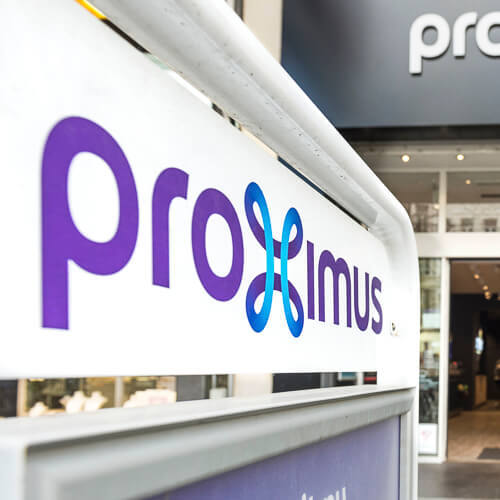
Belgian operator Proximus said its third quarter (Q3) and first nine-month results keep it "well on track" to meet its ambitions for the year, with organic group EBITDA expected to land in the mid to upper part of its guidance range.
The operator generally appeared cautiously optimistic, noting that the Belgian telecoms market is returning to more normal conditions. Guillaume Boutin, CEO of Proximus, said he is, overall, "very pleased with our results and progress on our strategy over the first nine months of the year."
Figure 1:  Belgium's Proximus posts decent results, as the country's telecoms market gets back to normal.
Belgium's Proximus posts decent results, as the country's telecoms market gets back to normal.
(Source: Henri Martin / Alamy Stock Photo)
"Financially, the organic underlying domestic revenue remains broadly on track while we kept strong momentum on our international businesses. We continue to monitor the global supply chain shortages that can have an impact on low-margin product and handset revenues. In addition, we keep a high focus on our company-wide cost program, on target to achieve €400 million (US$466 million) gross savings by end 2025," Boutin said.
Bouton also confirmed that the board has approved an interim dividend of €0.5 per share, to be paid in December 2021.
Proximus is nevertheless struggling to achieve growth at domestic level, where underlying revenue fell 0.8% year-on-year to €1.8 billion ($2.1 billion) and EBITDA fell 3.2% to €424 million ($494 million).
Group revenue increased by 2.4% to €1.4 billion ($1.6 billion) in Q3, owing to 22.1% growth at authentication and digital identity services businesses TeleSign and 12.6% growth at wholesale provider BICS.
The operator noted that the comparable 2020 figure for domestic consumer revenue had benefited from high-traffic voice volumes, while low-margin ICT hardware revenue in the enterprise unit was affected by the global chip shortage.
In its presentation, Proximus chose to focus on subscriber numbers, with 58,000 additional mobile postpaid customers, 5,000 new broadband and 5,000 new TV subscriptions.
Proximus group capex amounted to €239 million ($278 million) in Q3, bringing the total over the first nine months of 2021 to €736 million ($857.7 million).
Building fiber
Bouton hailed the ongoing expansion of the operator's fiber network as part of the "Fiber for Belgium" project, which will see Proximus invest €3 billion ($3.5 billion) in its fiber network over ten years.
In Q3, Proximus passed a further 65,000 new premises, increasing the total to 686,000 or coverage of over 11% of Belgium. By end-September, a total of 104,000 households had subscribed to a Proximus fiber offer.
"In line with our ambitious plan, we are further increasing capacity to obtain a 10% annual build coverage at cruise speed. With the two joint ventures Fiberklaar and Unifiber having set up construction works in six cities, we are well on track to cover at least 70% of Belgian households and enterprises with fiber by 2028," Bouton said.
Fiberklaar is a joint venture with EQT Infrastructure that plans to roll out fiber to at least 1.5 million homes and businesses in the Flanders region. Unifiber is a joint venture with Eurofiber whose aim is to deploy a fiber network in Wallonia.
Want to know more about 5G? Check out our dedicated 5G content channel here on
Light Reading.
Speaking during the analyst call on Friday, Bouton said: "An essential part of our strategy is about building the best gigabit network for Belgium and about bringing the superior network experience to our customers. Both 5G and fiber are crucial … a combination of the two that would be a game changer to the industry, and bring undisputed product superiority to Proximus."
Boulot said Proximus would be open to other industry partners in the two JVs, but does not believe there is a need for other financial partners. He also said the operator is always willing to talk to strategic partners.
"We said when we announced the creation of the two JVs that at some point we wanted to get back the ownership of the network, that's also really important," he added.
Notably, Proximus rival Telenet and Fluvius, the Flemish gas and electricity grid operator, have just agreed on a non-binding letter of intent regarding the development of their hybrid fiber coaxial (HFC) network infrastructure in Flanders. The aim is to create an open access network.
In terms of 5G, Bouton said the aim currently is to hold Belgium's auction of 5G-enabling spectrum in mid-2022. Belgium's plan for an auction has been at an impasse for years due to a disagreement between federal and regional governments. A key issue is the plan to reserve spectrum to allow a fourth operator to enter the market.
Related posts:
— Anne Morris, contributing editor, special to Light Reading
Read more about:
EuropeAbout the Author(s)
You May Also Like











